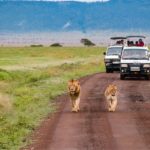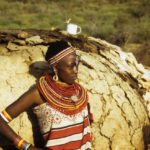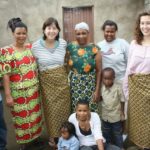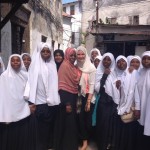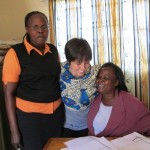My First African Funeral
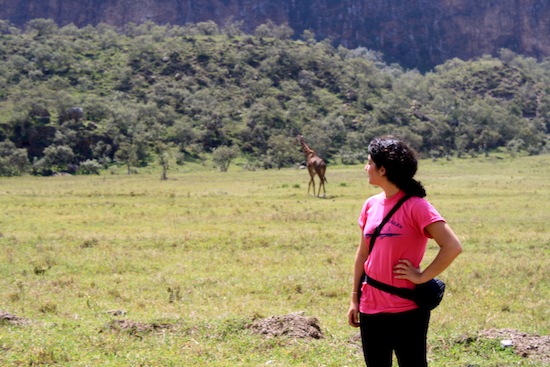

We are in the midst of exams (I teach English at a primary school outside Kakamega, Kenya), so every moment is spent grading tests and recording scores. There is a buzzing atmosphere around the school—both students and teachers are ready for the upcoming weeklong holiday. I was in the middle of grading some third grade science tests when Andrew, one of the founders of the school, walked into the staff room.
“I’m leaving,” he announced. One of the teacher’s fathers had passed away last week, and today was the funeral. Andrew was taking a delegation of teachers to Butere, a town about 45 minutes away, to attend. I buried my head in the sea of exams, trying very hard not to make eye contact. I didn’t know the teacher very well, and the idea of going to a small village to attend an African funeral where I would likely be the only mzungu seemed to be rife with potential awkwardness. No luck. “Nadine, you can go in my wife Lucy’s car,” Andrew pointed at me.
My First African Funeral.
I looked at the papers in front of me, about to exclaim that I really had so much work, when a male teacher next to me grabbed the exams and said, “It’s ok, I will mark them.” I gave him what I thought was a pretty good thanks for nothing look and made my way outside.
The drive to Butere was beautiful; the further away we got from Kakamega, the cleaner and quieter the countryside became. Instead of corn, fields of sugarcane cropped up—by far Western Kenya’s most profitable cash crop. As I stared out the window, Lucy looked over at me. “How many funerals have you been to?” she asked. I thought about it, “Maybe two or three,” I said. She smiled in kind of a sad way, “Here, I go to maybe two every weekend.”
When we arrived at the site of the funeral, I was surprised to see that it wasn’t being held at a church, but at a home. It was in a small compound of about four houses, all relatively tiny and made of mud with rusted tin roofs. The place was teaming with people sitting on the ground or in plastic chairs. On the far right corner was a slim white coffin, and next to it, a large patch of unearthed dirt. He’s going to be buried in his backyard, I realized with a start. The atmosphere was lively—no one was in black, the women wore brightly colored skirts and scarves around their hair. We arrived in time to watch Isaac, the teacher, making a speech about his father. After a bit, I heard him say the words “RUSH Academy” and the teachers around me began to stand up from their chair.
No, I will not go up in front of all these people, I thought. Andrew looked at me, “Let’s go,” he mouthed. I stayed in my chair. Johnson, another teacher, grabbed my elbow. “Kuja,” he whispered, the Swahili word for “come.” The group of six of us walked up to the front of the yard. Like I expected, everyone’s eyes were glued to me. It was a really small town in the middle of nowhere, and I must have been the only mzungu for miles. “Welcome to Kenya!” a man cried. Johnson looked at him, “She is a Kenyan,” he said. The crowd laughed, and I blushed—silently cursing my face for always betraying what I’m thinking. Isaac introduced us all, and then Lucy led the crowd in a beautiful Swahili song. I mouthed the words, and I felt even more Kenyan. After the funeral, we ate mandazi and drank chai, then said farewell to Isaac and his family.
As I stared at Kenya whizzing by on the drive back, I thought about how little time I actually have left here. About three more weeks, and then I’ll be on my way back to America. Not only that, but New York City for an internship at NBC. I will go from a place where I had to take bucket showers and learn what it means to have less than I ever thought I would, to a place where quite literally everything will be at my fingertips. I’m not sure how I will adjust.
But, if I’ve learned something new about myself here, it’s that I am surprisingly adaptable. Really, I think you can make a home anywhere. You might have to change bits and pieces of yourself, mold yourself to fit in this new place and these new surroundings—so that in the end, you are not the same person you were. You are different in very profound ways. But, you really can make a home anywhere. Therefore, I resolve to call every place that I end up in, from now until forever, my home. And I will see how that changes me. Kwaherini once again, Pink Pangea readers. Until next time.
Photo by Nadine Ajaka.

